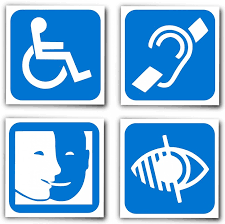What the Disabled Can Do When They Feel Marginalized in the Workplace
By EmployDiversity
As a disabled person, you are protected from discrimination by the Americans with Disabilities Act. It’s important to know that this protection extends through every aspect of employment. You’re protected from your first interaction with an employer right through to the termination of your relationship. If you believe your employer or someone at work is discriminating against you based on your disability, you should not stay silent.
Educating Employers
Your employer may not even understand what is expected or legally required of them when it comes to supporting disabled employees. They may also not understand your personal circumstances and how your disability affects you. So educating your employer is a great first step to remedying any discrimination that has occurred.
Most employers do not intentionally discriminate and will want to do the right thing once it’s brought to their attention. For example, if you have been denied a promotion for a field role because you have limited mobility, you might want to meet with your manager and explain that you are perfectly able to do the job with walking aids. Your disability requires that your employer provide you with reasonable accommodation. You may choose to provide your own aids or request ones from your employer. Since you’re able to do the job, you should be reconsidered for the promotion along with all of the other candidates.
Asserting Rights
If you have taken the step of educating your employer about your disability and their legal obligations and are still facing discrimination, you need to launch a formal complaint. Filing a formal complaint with your HR department or manager is an important next step for two reasons:
It gives your employer the opportunity to remedy the situation. It’s possible that you raised the issue with your supervisor and, although they haven’t taken it seriously, the HR department or the company’s leadership likely will.
It formalizes your discrimination complaint and puts the onus on the company to resolve the situation. This is particularly important where an employer is unresponsive to your complaint as it provides evidence that you brought the issue forward and gave them the opportunity to resolve it. This can be a very important step in the event that you choose to take legal action.
Anti-discrimination Support
If your complaint has still not be resolved, the Equal Employment Opportunity Commission or the anti-discrimination organization in your state can provide you support. You will need to file a charge against your employer if you intend to sue for discrimination. It’s important to do this immediately, as there are certain time limits depending on the state for filing a discrimination charge. After the charge has been filed, there will be an investigation and an approval to litigate may be issued. If litigation is approved, you will need a lawyer. Discrimination law is complex and it’s important to find an experienced employment lawyer, ideally one who specializes in litigating discrimination cases.
Discriminating against someone on the basis of their disability is a serious offense and you must assert your rights as a disabled person. Litigation should be considered only after you have escalated the issue internally. Many employers will be happy to work with you to provide accommodate your requests and to resolve your complaint. However, if your complaint is unresolved, it’s important to know that there are federal, state, and legal resources to help you.








